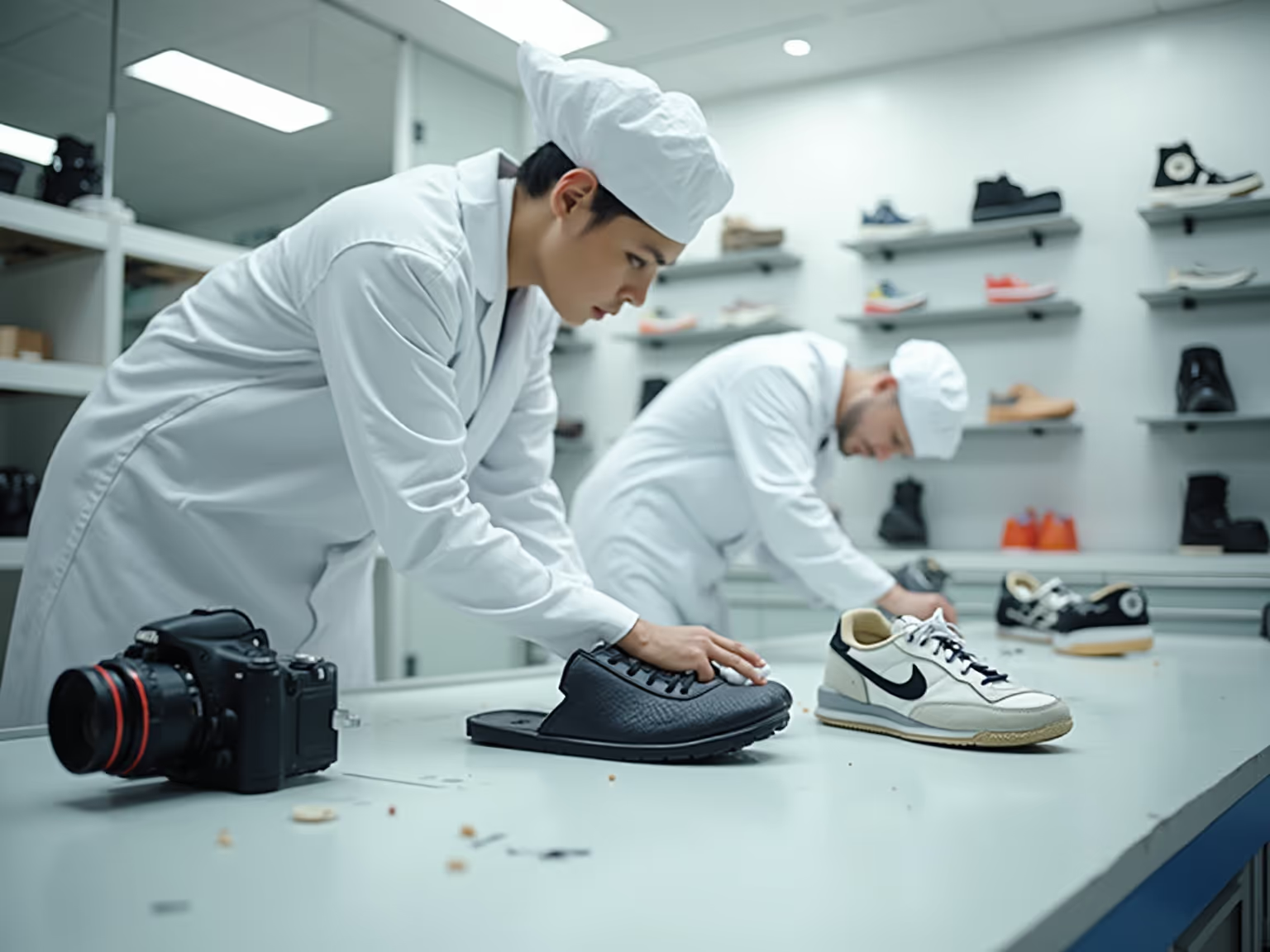Understanding UL Approved Meaning for Safety and Compliance
Discover the UL approved meaning for ensuring product safety and compliance across industries.

Introduction
Navigating the complexities of product safety and compliance is a critical aspect of modern manufacturing. Underwriters Laboratories (UL) stands as a global leader in this domain, offering rigorous safety certification that spans a multitude of industries. From its inception in 1894 to address electrical safety concerns, UL has expanded its scope to include consumer electronics, industrial machinery, and cutting-edge technologies.
This article delves into the importance of UL certification, the various types available, and the comprehensive process involved. It also highlights the tangible benefits for businesses and consumers, while dispelling common misconceptions surrounding UL certification. In an era where product safety is paramount, understanding UL’s role is essential for manufacturers striving to meet stringent safety standards and maintain consumer trust.
What is UL and Its Importance
'Underwriters Laboratories (UL) serves as a fundamental element in worldwide assurance, guaranteeing that items across different sectors comply with rigorous safety criteria. Founded in 1894 mainly to tackle the growing demand for electrical protection, UL’s approval now covers a broad range of items, from consumer electronics to industrial machinery, and even new technologies like AR/VR/MR equipment. This comprehensive approach helps manufacturers comply with both national and international standards, such as UL 8400 and UL/IEC 62368-1, mitigating risks while enhancing consumer confidence.
The importance of UL approval is further highlighted by recent trends in product protection and recalls. According to Sedgwick's 2024 State of the Nation Recall Index report, there were 3,301 recall events in 2023 across five major industries, marking a seven-year high. This increase in recall occurrences, despite a decline in the count of flawed units, emphasizes the essential requirement for thorough testing and adherence to standards.
UL’s role in this landscape is pivotal. By providing thorough testing and certification, UL helps brands demonstrate due diligence and navigate complex market requirements. This not only protects brand liability but also ensures a safer consumer experience. The significance of such alertness is reinforced by Sedgwick’s specialists, who highlight the increasing emphasis on merchandise protection and the legal, regulatory, and financial risks organizations encounter.
Real-world cases illustrate the consequences of inadequate protective measures. For instance, a California jury recently ruled that a clothing company must pay over $1 million to flight attendants affected by harmful chemicals in their uniforms. This case, among many others, underscores the vital role organizations like UL play in safeguarding both consumers and manufacturers against potential hazards.
In a world where consumer protection is essential, UL approval provides invaluable confidence that items have undergone thorough evaluation to meet established standards, fostering trust and dependability in the marketplace.

Types of UL Certifications
UL provides a range of qualifications, each particularly tailored to meet various item classifications and regulatory benchmarks. The most prevalent accreditations include UL Listed, UL Recognized, and UL Classified.
-
UL Listed: This certification signifies that an item has been rigorously tested and meets UL's specific safety requirements. It assures consumers that the item is safe for daily use, preventing potential risks and hazards. For example, adherence to UL standards can minimize accidents, injuries, or health risks associated with electronic items.
-
UL Recognized: This validation applies to elements that are part of a larger item, ensuring that these components meet specific protection standards. Elements with this approval have been assessed for their role in the overall security of the final item. This signifies that every component of the item contributes to upholding the security and dependability of the whole system.
-
UL Classified: This designation indicates that an item fulfills specific standards for a particular use or application. It guarantees that the product is appropriate for its intended surroundings and application, giving users assurance in its effectiveness and reliability.
Every kind of accreditation shows a dedication to security and quality, contributing to the establishment of trust and dependability among consumers. Regulatory guidelines like these are essential for reducing potential risks and ensuring the well-being of users, thereby safeguarding both consumers and manufacturers from the repercussions of noncompliance.

UL Certification Process
The UL certification procedure is a multi-step process that ensures items meet rigorous protection criteria, gaining consumer confidence and market approval. At first, manufacturers present their items for thorough examination, which encompasses electrical, mechanical, and fire hazard assessments. For example, UL 62368-1 is a widely accepted guideline for electronics, guaranteeing they fulfill international protection criteria. Once a product passes these tests, it receives UL approval, indicating conformity with industry protection criteria.
However, achieving UL certification is not a one-time event. UL performs regular audits and compliance evaluations to ensure ongoing adherence to quality standards. This ongoing scrutiny helps mitigate potential risks and hazards associated with electronic devices, thus protecting consumers from accidents or injuries. Noncompliance can lead to significant reputational damage and loss of consumer trust, as well as potential legal and financial repercussions for manufacturers.
LEDVANCE, a leader in general lighting, exemplifies the importance of maintaining compliance. With operations in over 150 nations, their dedication to security and innovation is evident in their extensive range of certified products. This commitment not only guarantees consumer protection but also enhances their market position and brand reputation.
As the regulatory landscape continues to evolve, staying compliant is more critical than ever. According to industry reports, the medical device sector is experiencing unprecedented growth, making adherence to regulatory requirements essential for success. This underscores the importance of efficient document preparation and streamlined processes to meet these standards effectively.
In summary, UL approval is a cornerstone of item security and compliance, fostering consumer confidence and ensuring long-term business success in a competitive market.

Benefits of UL Certification for Businesses and Consumers
Acquiring UL approval greatly enhances a item's credibility and marketability, offering companies a unique competitive advantage. This accreditation not only reduces liability risks, as certified items are less susceptible to safety incidents, but also guarantees adherence to strict safety standards. For consumers, UL approval provides confidence, understanding that the items they buy are safe and dependable. Retailers often require UL certification before stocking items, making it essential for market access. Adhering to such regulatory criteria encourages innovation and technological progress, resulting in safer, more efficient items. Noncompliance can severely damage a company’s reputation and hinder its ability to achieve business objectives, emphasizing the importance of following these guidelines.

Common Misconceptions About UL Certification
A common misconception about UL approval is that it ensures a product's overall performance or quality. UL approval mainly signifies adherence to particular safety standards, instead of assessing performance or quality under all circumstances. Another misunderstanding is the belief that UL approval is universally mandatory. Although it is often necessary for certain items in specific markets, it is not a global mandate. Additionally, many people confuse UL Listed with UL Recognized. These terms represent different levels of certification, tailored for varying product types and applications.

Conclusion
UL certification is essential in ensuring product safety across various industries. Founded in 1894, Underwriters Laboratories (UL) has evolved to meet contemporary safety challenges, particularly as highlighted by the rise in product recalls documented in Sedgwick's 2024 State of the Nation Recall Index. This underscores the necessity for manufacturers to prioritize rigorous safety testing and compliance to protect both consumers and their brands.
The different types of UL certifications—UL Listed, UL Recognized, and UL Classified—allow manufacturers to select the appropriate certification for their products, enhancing safety and reliability while building consumer trust.
The UL certification process is comprehensive and ongoing, which ensures that products maintain compliance with safety standards over time. This commitment to continuous audits and checks is vital in fast-evolving sectors such as electronics and medical devices, where safety is paramount.
In summary, UL certification offers significant benefits for both businesses and consumers. It enhances product credibility, reduces liability risks, and facilitates market access for manufacturers. For consumers, it provides assurance that products meet established safety criteria.
By understanding and embracing UL certification, stakeholders can appreciate its crucial role in promoting public safety and encouraging innovation in manufacturing.



